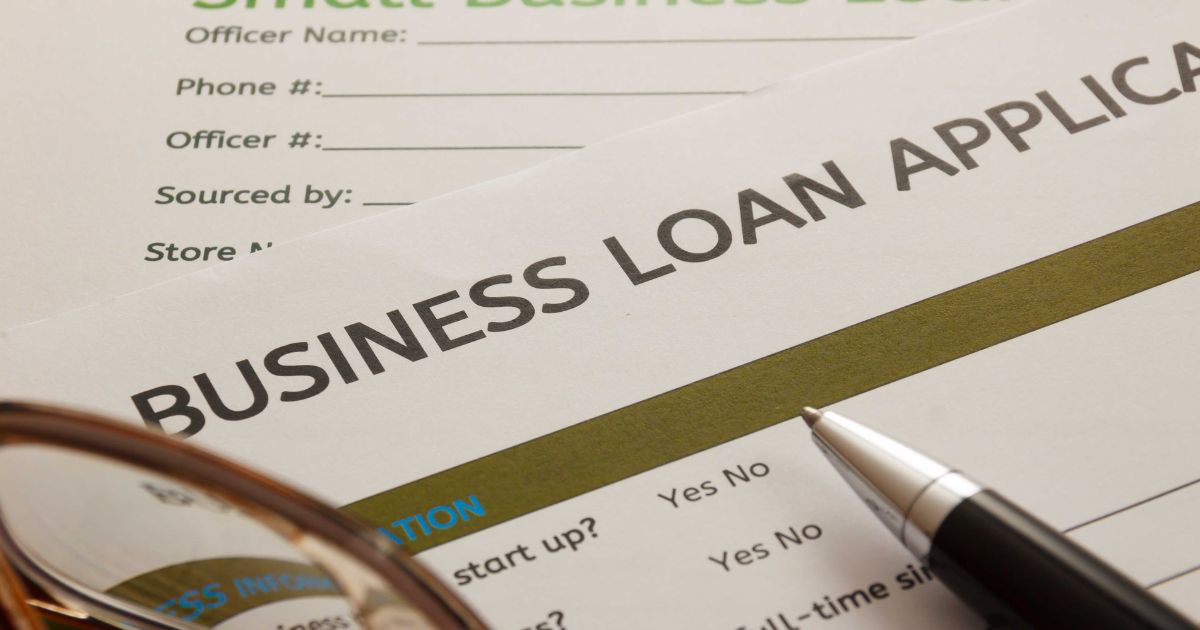Are you worried that your bad credit will prevent you from getting a small business loan? Don’t despair! In this article, we will explore the possibilities and provide you with valuable insights on how to secure a loan for your business, even with bad credit. By understanding the impact of bad credit on loan applications, exploring alternative lenders, and taking steps to improve your chances, you can still achieve your entrepreneurial dreams. Don’t let your credit history hold you back – let’s get started!
Key Takeaways
- Bad credit significantly affects the chances of loan approval for small businesses.
- It is important to review credit reports for errors or discrepancies and gather necessary financial documents to demonstrate stability.
- Exploring alternative lenders can be a viable option as they have more flexible requirements compared to traditional banks.
- Strategies for improving credit, such as paying bills on time and reducing debt, can increase the chances of loan approval.
The Impact of Bad Credit on Small Business Loans
If you have bad credit, it can significantly affect your chances of getting approved for a small business loan. Lenders use your credit score as an indicator of your financial responsibility and ability to repay the loan. When you have bad credit, it signals to lenders that you may have a history of late payments, defaults, or other financial difficulties. This makes them hesitant to lend you money for fear that you may not be able to repay it. Additionally, having bad credit may result in higher interest rates or stricter loan terms, which can make it even more challenging to obtain financing for your small business. Therefore, it is crucial to work on improving your credit score to increase your chances of getting approved for a small business loan.
Understanding the Requirements for Small Business Loans With Bad Credit

To successfully obtain a small business loan with less than ideal credit, it is important for you to understand the specific requirements. Lenders are typically more cautious when it comes to lending money to businesses with bad credit, but that doesn’t mean it’s impossible. Start by reviewing your credit report and identifying any errors or discrepancies.
Next, gather all the necessary financial documents, such as tax returns, bank statements, and profit and loss statements, to demonstrate your business’s financial stability. Additionally, be prepared to present a solid business plan that outlines your goals, strategies, and projections. It’s also worth considering alternative lenders or government-backed loan programs that may have more lenient credit requirements. Remember, while bad credit may pose challenges, with careful preparation and a strong application, you can still have a shot at securing a small business loan.
Exploring Alternative Lenders for Small Business Loans
When considering alternative lenders for your small business, it’s important to research and compare the different options available to find the best fit for your financial needs. Alternative lenders can be a great option for small businesses with bad credit, as they often have more flexible requirements compared to traditional banks. These lenders understand that small businesses may face challenges and are willing to work with you to find a solution.
They offer a variety of loan products, such as term loans, lines of credit, and invoice financing, allowing you to choose the option that suits your specific needs. It’s advisable to carefully review the terms and conditions of each lender, including interest rates, fees, and repayment terms, to ensure that you are making an informed decision. By exploring alternative lenders, you can find the financial support you need to grow your small business, even with bad credit.
Improving Your Chances: Steps to Take Before Applying for a Small Business Loan
Before diving into the process of applying for a small business loan, there are several steps you can take to improve your chances of approval. First, familiarize yourself with the credit score requirements of lenders to ensure you meet their criteria. Second, focus on building a strong credit history by paying bills on time and reducing debt. Lastly, consider exploring alternative funding options in case traditional lenders are not a viable option for you.
Credit Score Requirements
If your credit score is below a certain threshold, you may have difficulty obtaining a small business loan. Lenders typically consider credit scores as a measure of your ability to manage debt responsibly. While there is no standard credit score requirement for all lenders, most traditional banks and financial institutions prefer borrowers with credit scores in the good or excellent range.
These scores typically fall between 670 and 850. However, there are alternative lenders and loan options available for entrepreneurs with bad credit. These lenders may be more lenient and willing to work with you, but they might charge higher interest rates or require additional collateral. Building credit history is crucial for improving your chances of getting a small business loan, and we will explore this further in the next section.
Building Credit History
Improving your credit history is essential in increasing your chances of securing a loan for your small business. Lenders often rely on your credit history to assess your creditworthiness and determine the terms of the loan. By building a positive credit history, you demonstrate your ability to manage debt responsibly and repay loans on time. Here are some steps you can take to improve your credit history:
- Pay your bills on time: Late payments can negatively impact your credit score. Set up reminders or automatic payments to ensure you never miss a payment.
- Reduce your debt: High levels of debt can signal to lenders that you may struggle to repay a loan. Paying off existing debts can improve your credit utilization ratio.
- Maintain a mix of credit: Having a diverse mix of credit, such as credit cards, loans, and a mortgage, can positively impact your credit score.
- Monitor your credit report: Regularly review your credit report for errors or inaccuracies that could be dragging down your score.
By following these steps, you can gradually improve your credit history and increase your chances of securing a small business loan.
Now that you understand the importance of building credit history, let’s explore alternative funding options for your small business.
Alternative Funding Options
Now that you know the importance of building credit history, let’s take a look at some alternative funding options for your small business. If you have bad credit, traditional bank loans may not be your best bet. However, there are still avenues you can explore. One option is a microloan, which is a small loan typically offered by non-profit organizations or community-based lenders. These loans are designed for entrepreneurs who may not qualify for traditional financing.
Another option is crowdfunding, where you can raise funds from a large number of people who believe in your business idea. Additionally, you could consider using your personal assets, such as savings or home equity, to secure a loan. Lastly, exploring grants or seeking out angel investors may be worth considering. Remember, with determination and creativity, there are alternative funding options available to help your small business thrive, even with bad credit.
Tips for Successfully Applying for a Small Business Loan With Bad Credit
You might be wondering what tips can help you successfully apply for a small business loan with bad credit. Don’t worry, there are strategies you can employ to improve your chances. Here are three key tips to keep in mind:
- Understand your credit situation: Take the time to review your credit report and identify any errors or discrepancies. This will help you address and explain any negative factors to potential lenders.
- Build a strong business plan: A well-crafted business plan can demonstrate your ability to repay the loan. Include financial projections, market analysis, and a clear repayment strategy to showcase your business’s potential.
- Explore alternative lenders: Traditional banks may be hesitant to lend to businesses with bad credit, but there are alternative lenders who specialize in working with these types of borrowers. Research and consider these options to find the best fit for your needs.
Case Studies: Small Business Owners Who Secured Loans With Bad Credit
Let’s take a look at some real-life examples of small business owners who were able to secure loans despite their credit challenges. These stories serve as inspiration for those facing similar obstacles. One success story is Lisa, the owner of a small bakery. Despite having a low credit score, she was able to secure a loan by showcasing her strong business plan and financial projections.
Another example is Mike, who owns a landscaping company. Despite a history of late payments, he was able to secure a loan by providing collateral and demonstrating his industry expertise. These stories highlight the importance of perseverance and determination. It is possible to secure a small business loan with bad credit, as long as you can demonstrate your ability to repay the loan and present a solid business plan. So, don’t lose hope.
Frequently Asked Questions
Can I Get a Small Business Loan With Bad Credit if I Have a Strong Business Plan and Financial Projections?
If you have a strong business plan and financial projections, you may still be able to get a small business loan with bad credit. Lenders often consider these factors alongside credit history.
What Are Some Alternative Lenders That Specialize in Providing Small Business Loans to Entrepreneurs With Bad Credit?
You’ll be pleased to know that there are alternative lenders who specialize in providing small business loans to entrepreneurs with bad credit. They understand the challenges you face and are here to help you succeed.
How Long Does It Typically Take to Improve My Credit Score and Increase My Chances of Getting Approved for a Small Business Loan?
Improving your credit score can increase your chances of getting approved for a small business loan. The time it takes to improve your credit score varies, but consistently making on-time payments is key.
Are There Any Government Programs or Initiatives That Offer Financial Assistance to Small Businesses With Bad Credit?
Yes, there are government programs and initiatives that offer financial assistance to small businesses with bad credit. These programs aim to support and provide opportunities for entrepreneurs like you to grow and succeed.
What Steps Can I Take to Demonstrate My Creditworthiness and Improve My Chances of Being Approved for a Small Business Loan With Bad Credit?
To demonstrate creditworthiness and improve your chances of getting a small business loan with bad credit, focus on improving your personal credit score, providing collateral, and presenting a solid business plan.
Conclusion
In conclusion, securing a small business loan with bad credit may be challenging, but it is not impossible. By understanding the impact of bad credit on loan approvals and exploring alternative lenders, small business owners with poor credit can still find financial options. Taking proactive steps to improve credit and carefully preparing loan applications can increase the chances of approval. While it may feel like climbing Mount Everest, determination and perseverance can help you overcome the obstacles and secure the funding you need.








